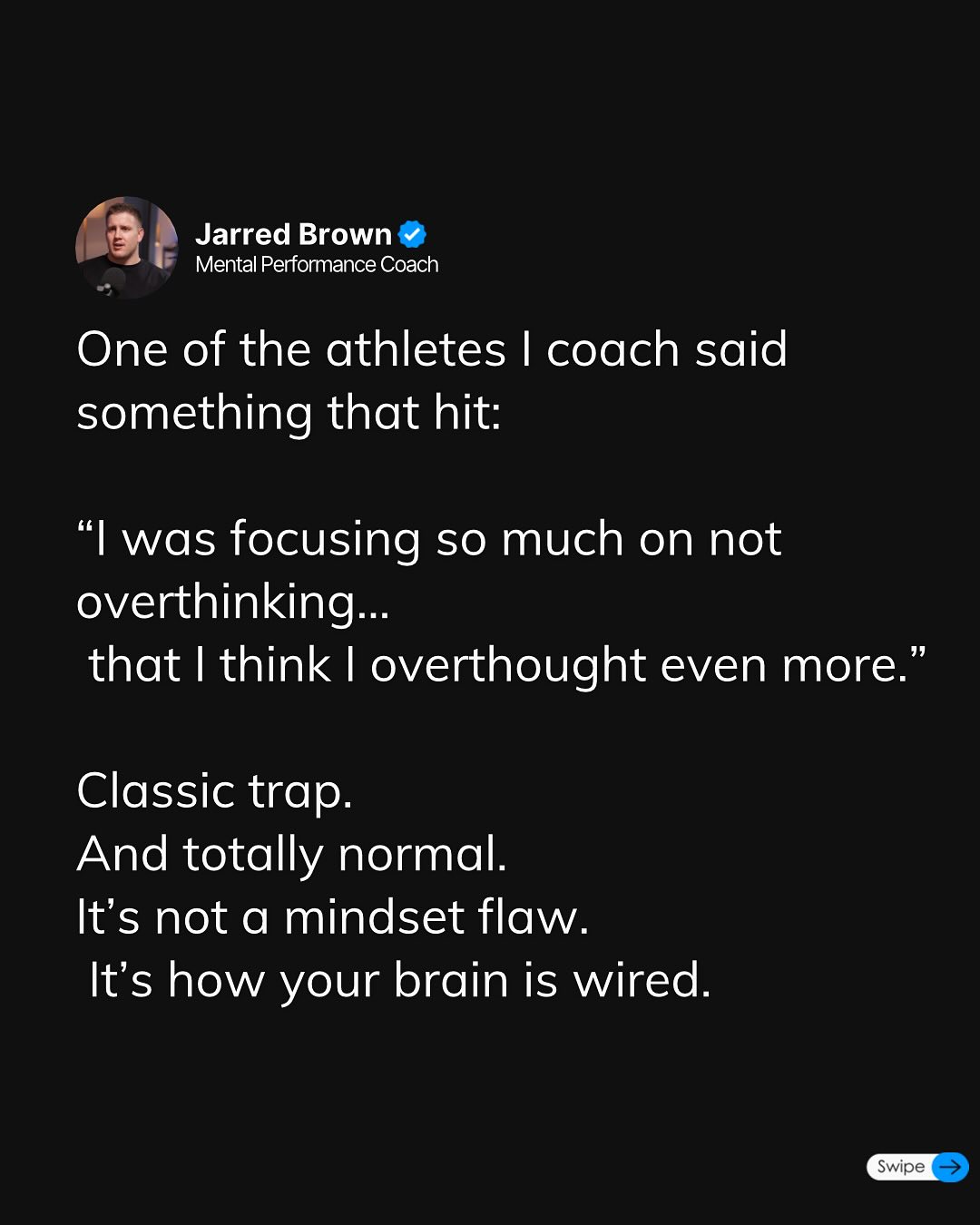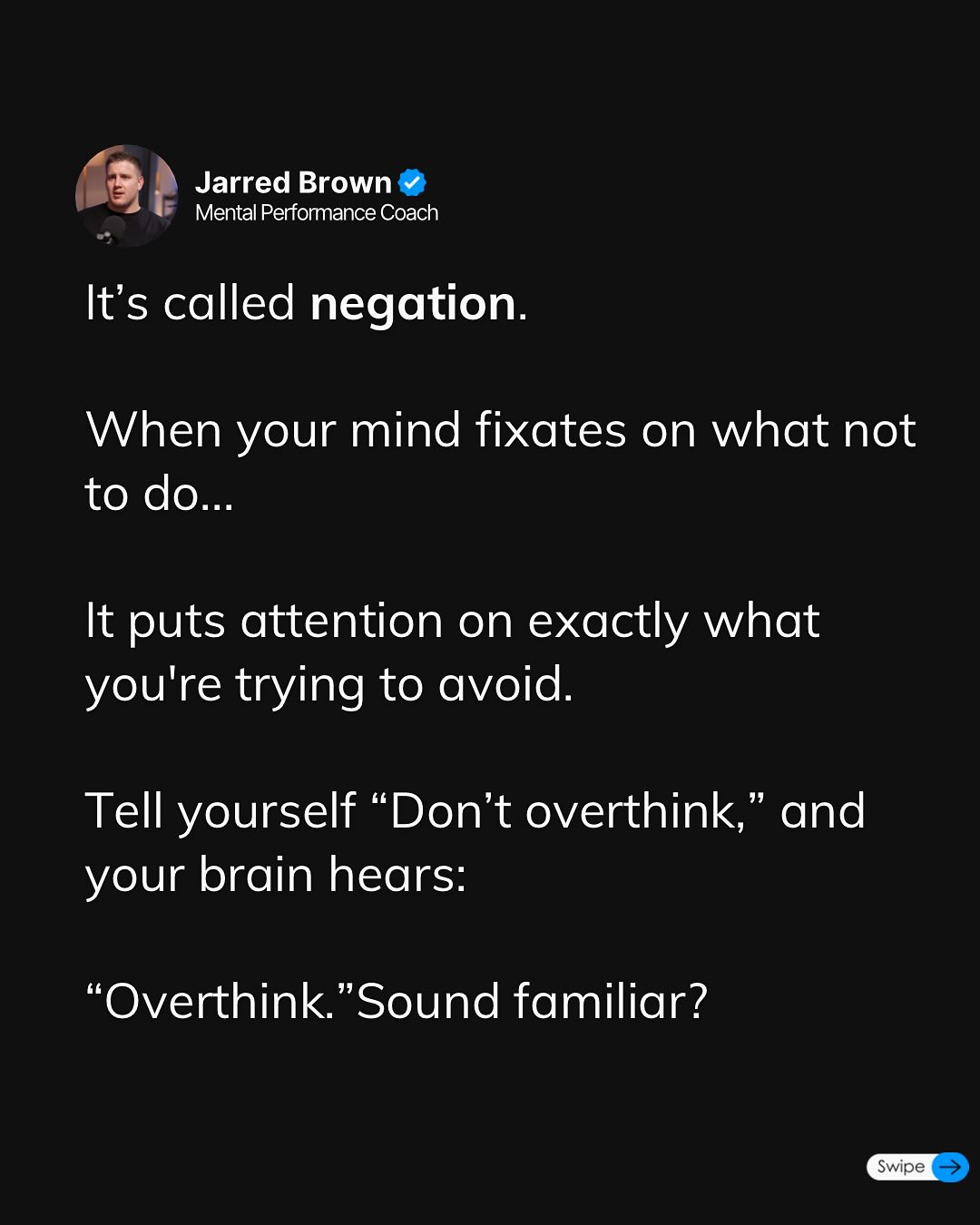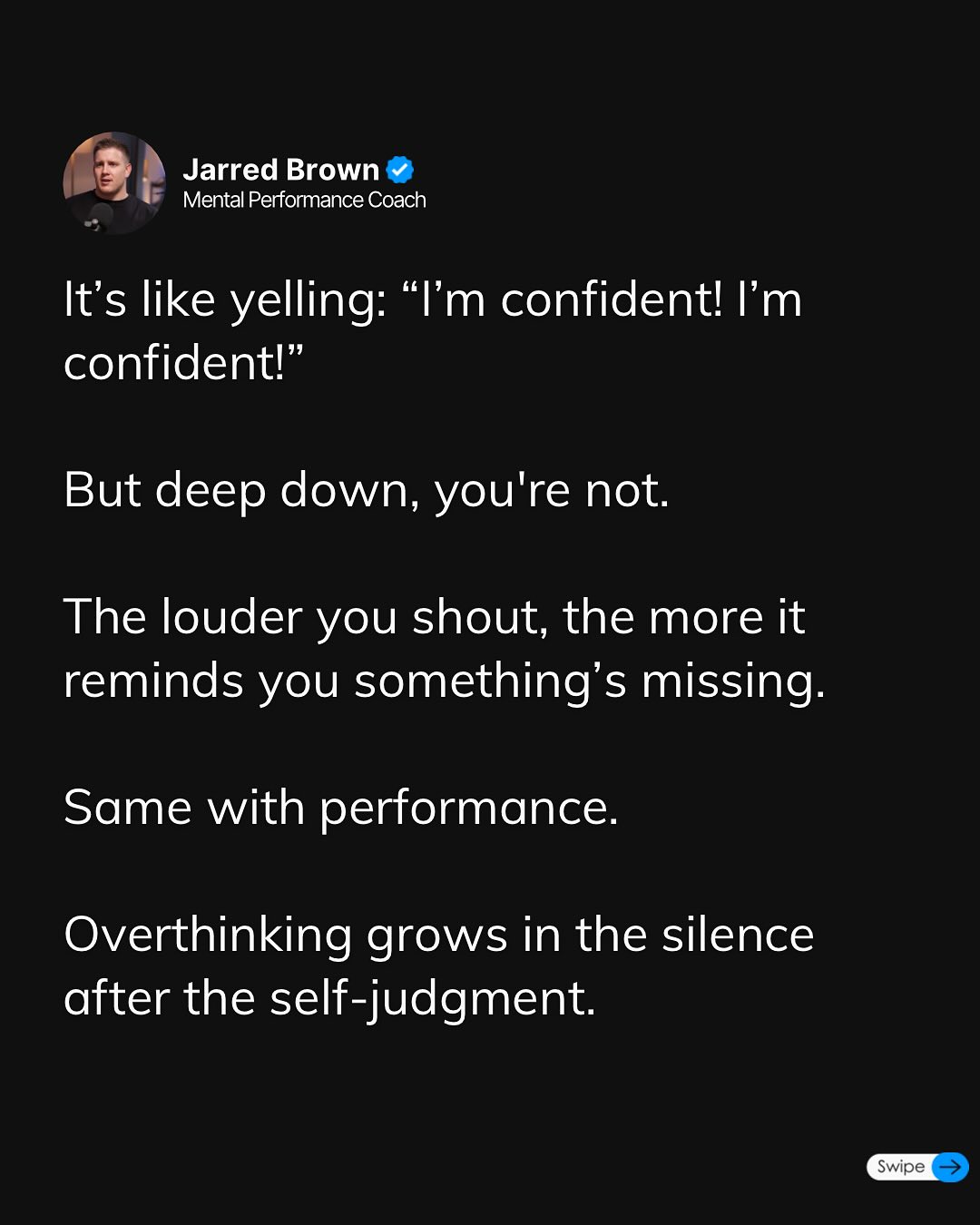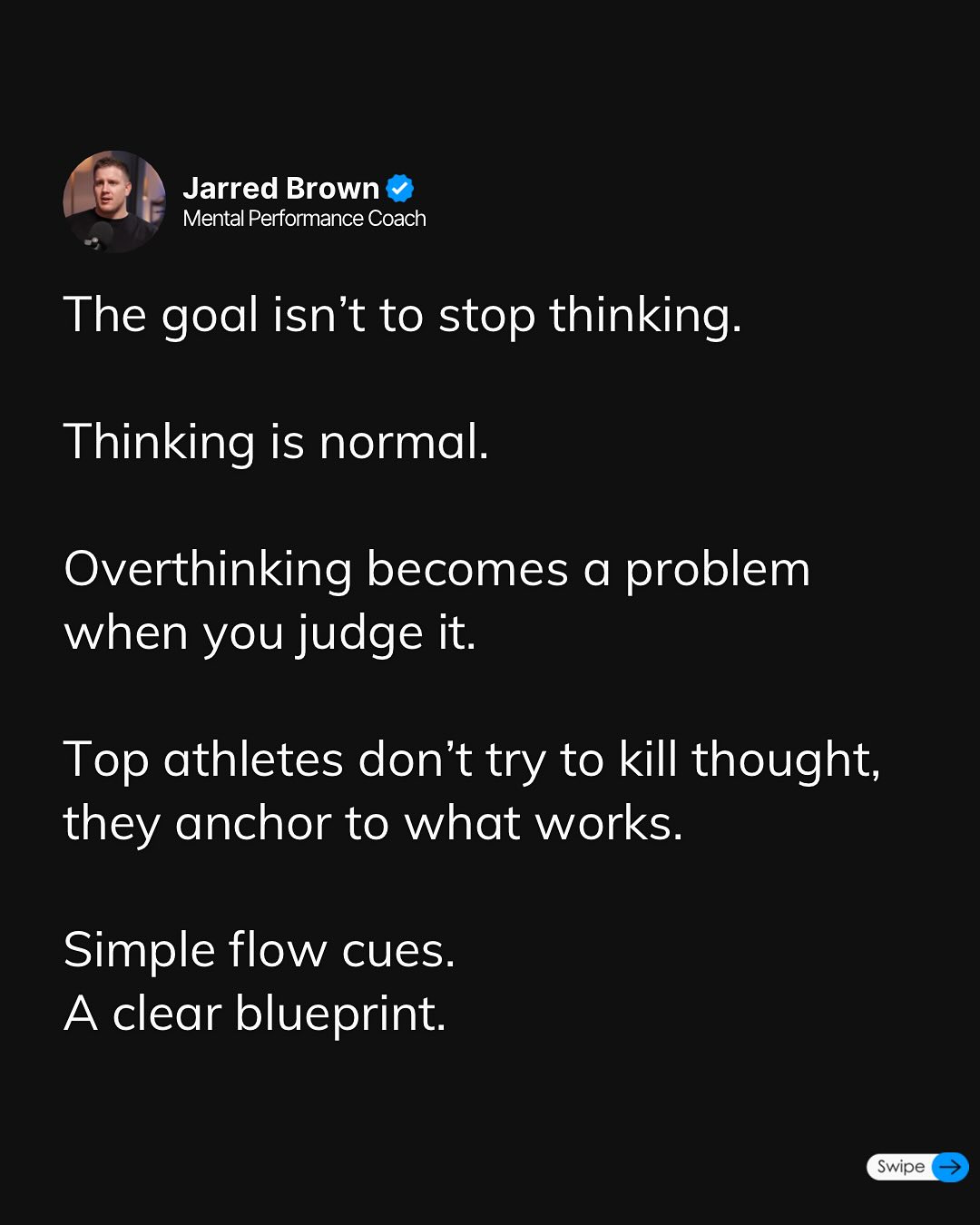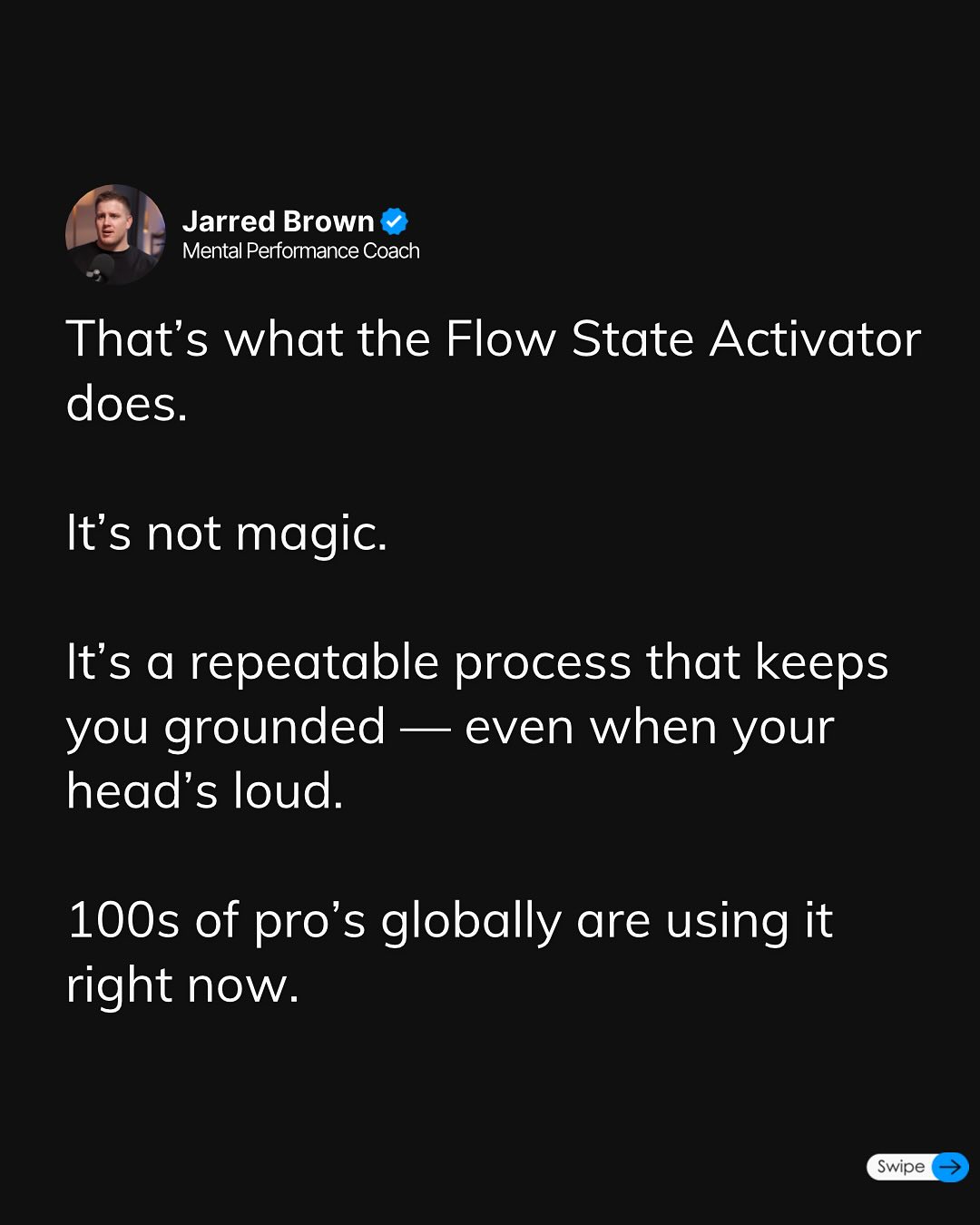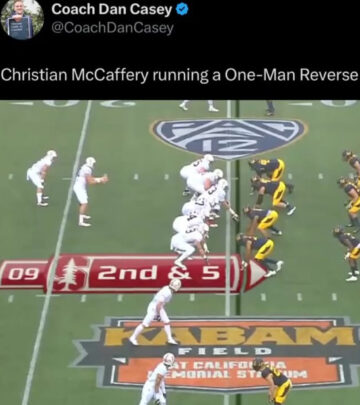Overthinking Paradox: Mental Coaching Insights
Jarred Brown reveals how negation fuels overthinking while anchoring flow for top athletes.

Image: Instagram
Mental skills coach Jarred Brown has long been at the forefront of helping athletes unlock their greatest potential, and his latest insights shed light on a counterintuitive truth: trying not to overthink can actually cause more thought. In a conversation with one of the athletes he coaches, Brown recalled an admission that struck home, “I was focusing so much on not overthinking… that I think I ended up overthinking even more.” This paradox is a vivid reminder of the intricacies of the human mind and the challenges that elite competitors encounter as they strive to keep their heads clear and their performances sharp.
Negation And Overthinking
At the heart of Brown’s message is the concept of negation. When we attempt to suppress our thoughts, we inadvertently highlight them. It’s much like standing before a mirror and repeatedly shouting, “I’m confident!” only to have your inner doubts amplified. Brown explains that the mind, instead of shutting down, becomes preoccupied with the very thoughts it is told to eliminate. Such mental misdirection, he argues, not only undermines an athlete’s confidence but can also set off a cycle of self-doubt, causing a spiral into what he wryly dubs ‘spiral city.’
The phenomenon is not simply about a lack of confidence—it is about misdirected focus. When an athlete fixates on the idea of not overthinking, their mind, ironically, begins to overanalyze every movement and decision. This overanalysis manifests as hesitation and self-doubt right when clear, decisive action is required. In sports, where split-second decisions can define a game’s outcome, this mental fog can be the difference between victory and defeat.
Building A Flow State
Instead of battling the natural process of thought, Brown advocates for a different approach: anchoring the mind to a reliable set of cues and routines—a process he refers to as engaging the Flow State Activator™. This isn’t about forcing athletes into a state of mind; rather, it is about establishing a blueprint of mental processes, a series of cues and anchors that keep the athlete grounded even when the inner critic grows loud. The goal here is not to eliminate thoughts, but to know exactly where to return one’s focus once distractions appear.
Brown’s method is rooted in practical experience. In coaching sessions, he emphasizes that thought is not inherently problematic. It is only when the thoughts lead to unnecessary judgment and pressure that performance suffers. The elite athletes he works with don’t aim to empty their minds. Instead, they zero in on what works, allowing a calm and grounded confidence to emerge. An Instagram post from Brown reminds his followers of the power of process-driven focus over outcome-centric pressure. This shift in mindset—from trying to switch off thoughts to redirecting them—can lead to more fluid performance and improved consistency on the field.
Process Over Outcome
The importance of process is further reinforced by Brown’s coaching philosophy. In earlier posts, he has shared performance principles that emphasize adapting to mistakes and channeling focus into actionable cues, whether on the field or in mental training sessions. One key principle is to anchor decisions to a well-practiced routine rather than to dwell on the fear of failure. The idea is simple: if you focus on what creates success rather than on the fear of not achieving it, you inadvertently remove the extra pressure that may lead to overthinking.
Brown points out that, for the athletes he coaches, eliminating thought is neither the goal nor the solution. Instead, the ideal is to have a prepared, clear mind step back from the chaos of overanalysis. By leveraging strategies like the Flow State Activator™, athletes can transition from a reactive response to challenges into a more deliberate, confident performance. They learn to trust their process instead of being consumed by outcome metrics such as score lines or statistical targets.
Transformative Insights For Athletes
This mental shift is crucial in competitive sports, where the pressure of high-stakes moments can lead even the most talented players to falter. Brown’s insights remind us that mental preparation and process-based training are just as critical as physical training. His recent discussions and accompanying Instagram posts, which feature images of him in action during coaching sessions, further emphasize the need to balance mental discipline with the natural flow of thought. The visuals capture not only the intensity of practice but also the calm determination that results from a well-anchored mindset.
In sharing these insights, Brown underscores a broader trend among elite athletes: performance is enhanced when one trusts their internal narrative and established routines over chasing external validations. As his experience and coaching acumen show, it’s the process—the daily practices, the mental cues, and the disciplined routines—that cultivates the resilience necessary for success.
By embracing the natural ebb and flow of thought and rechanneling it toward performance-enhancing routines, athletes can move past the irony of overthinking and instead harness a confident, focused mindset every time they step into the arena.
Read full bio of Nisha Bharatan



